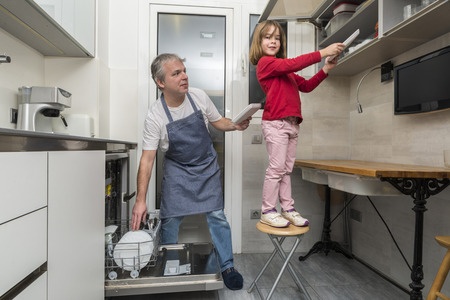Rebuilding Communications with Family Members

When the ties that bind us reach a breaking point, we know that rebuilding communications with family members is a priority. Communication bridges link us to one another, but they tend to rip apart when trust has been lost or compromised.
Someone didn’t keep their word, information was hidden, lies were told, a mistake was made and not admitted to – any of these occasions create a situation in the family when the harmed person withdraws or becomes defensive and unfriendly. When family members pull away it’s often the case that resentment has set in.
Restoring Trust
Even though the other person may have done something really awful, in rebuilding communications with family, acknowledging errors that you have made will be critical for your etiquette-ful approach in forgiveness and thinking long-term.
The only way to restore trust and go forward is through repaired communications. As you’ve taken on the role of initiating good relationship with the family member on the outs, the first things to ask yourself are:
- Am I clear and confident in my purpose? (Part of which is to offer the hope of getting them talking again.)
- Am I willing to leave a wide communication lane for the person so that they don’t misperceive the bridge to be one-sided only?
- Am I approaching the whole restoration project with a heart of etiquette-fulness – with respect, kindness, ready to let the other person go first, letting go of any defensiveness I may have?
Tools for Rebuilding Communications with Family
When the family member who has withdrawn agrees to meet and a time and place have been set, greet with a smile and thankfulness that they are willing to get together to talk. Aim to be direct and discreet.
- Choose an environment where it’s comfortable and communicate that you hope you each can feel safe to speak freely. (If you sense there will be a “rolling of the eyes” when you suggest this, you might come prepared to offer to use a timer. Ask the other person to play the role of timer.) Dialogue is the goal.
- Acknowledge there is a problem. (Be sure to have thought this through.)
“Joan, we’ve gone through some hard times. It feels ask if communication lines are totally down. I hope we can come to understand and make things better.”
“Rory, somehow after Aunt Mary’s last Thanksgiving dinner, I’ve sensed that something was broken between us.” - Their perceptions and feelings are as valid as yours. Be open.
- Share the emotions you’ve had around the issue of the withdrawal, but do not blame.
- Be ready for the fact that there might be many “agree to disagree” moments.
- Never raise your voice and avoid sighs of frustration.
- If a specific issue requires a decision, make compromise the goal.
You may need to establish what you need going forward: truthfulness, kindness, promise to RSVP invitations, and even agreement of what’s okay to post on social media pertaining to the family. But patience on your part with go a long way in rebuilding communications with family members.














